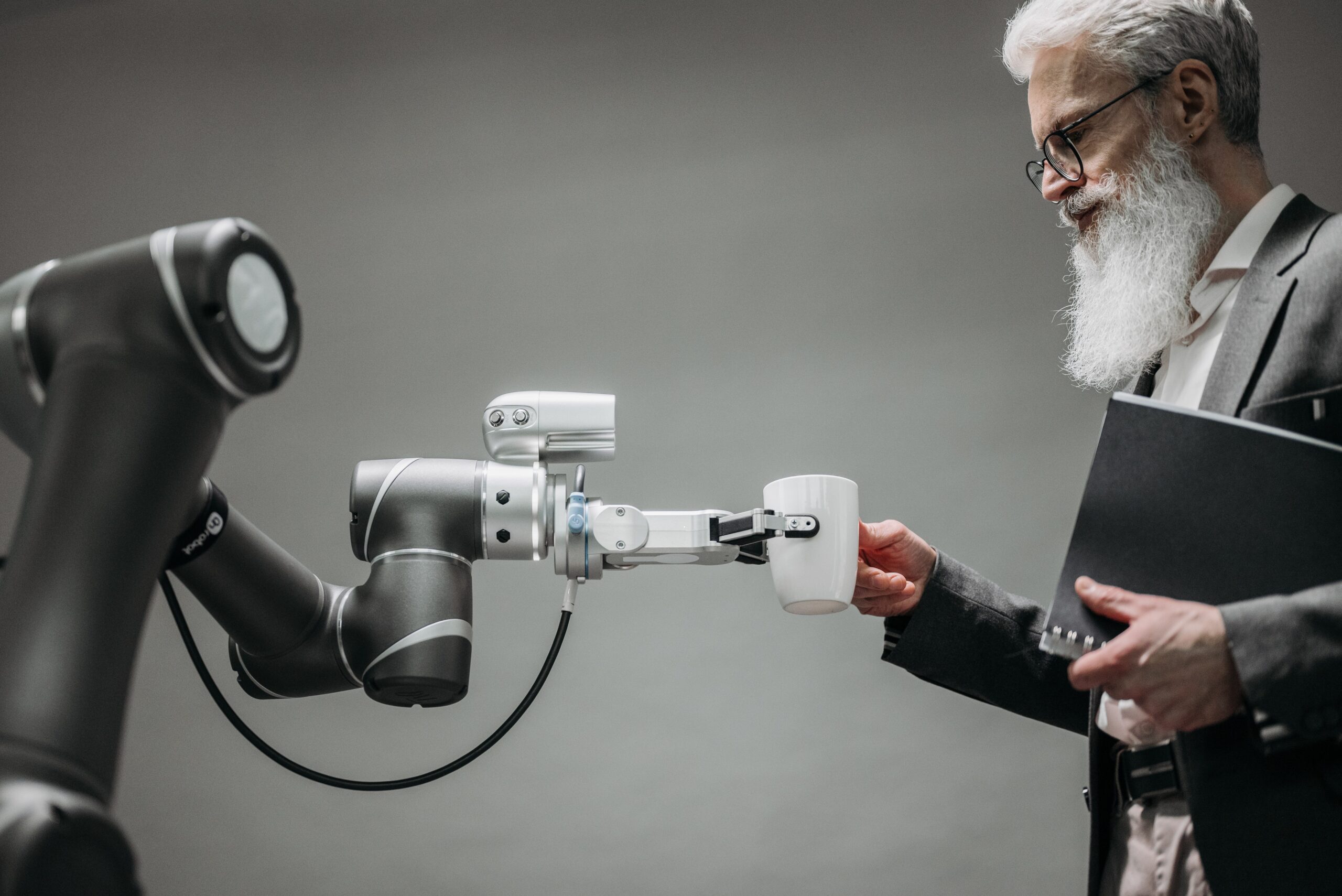Digital news platforms and artificial intelligence are synergizing in revolutionary ways, transforming marketing strategies. This analysis explores emerging intersections enabling more automated, data-driven and personalized brand connections through journalism outlets. By assessing key innovations and implications, we illuminate a promising alliance.
The Role of Artificial Intelligence in Digital Marketing
Artificial intelligence is profoundly enhancing digital marketing across industries. Algorithms help brands analyze customer data, identify behavior patterns and accurately target optimized messaging. Chatbots handle basic queries to improve support experiences. Predictive analytics informs dynamic content tuning and sales forecasting models. And machine learning matches products to consumer preferences via recommendation engines. Together these AI marketing tools increase relevance, conversions and revenue. According to Salesforce research, AI enhances productivity by an average of 41% in digital marketing teams. As algorithms grow more sophisticated marketing automation, the competitive imperative to adopt AI intensifies.
Revolutionizing the Digital Landscape: Exploring the Integration of Artificial Intelligence in Modern Marketing Strategies
Further dynamic integrations between artificial intelligence and digital marketingstrategies are imminent. Contextual advertising uses real-time relevancy signals to serve hyper-personalized promotions within digital interfaces. Augmented writing tools help craft targeted messaging at scale. Intelligent content management systems then optimize delivery pace and patterns personalized to micro-audience segments. And emotion detection through computer vision will enable gauging psychological responses to fine-tune approaches. Already AI performs key tasks like initial campaign drafting and audience clustering so marketers can focus on high-level creative oversight. Soon it may autonomously manage comprehensive strategies if ethical questions regarding transparency can be addressed. Hence by both assisting and assuming critical marketing responsibilities, AI promises continued transformation.
| Website | Key Features |
| CoinDesk | In-depth crypto news, analysis and research |
| Cointelegraph | Latest crypto developments and educational guides |
| Decrypt | Multimedia content and beginner resources |
The Importance of Compelling Newsletter Content
Email newsletters remain crucial conduits for consistent brand-audience engagement. But crafting compelling content that cuts through overflowing inboxes challenges most marketers. AI writing assistants help create higher-converting newsletter campaigns through data-driven recommendations. These tools analyze historical performance metrics to determine optimal structures, topics, sentiment tones and calls-to-action tailored to each subscriber segment. The AI then generates completely customized email content accordingly. Dynamic subject lines pique interest while thematically-relevant articles and product recommendations retain attention, driving desired actions. Hence intelligent automation enables mass personalization to boost open and clickthrough rates which human creators alone cannot match.
The Intersection of AI and Food: Revolutionizing an Industry
Artificial intelligence and automation are radically transforming the food sector. Predictive analytics and machine learning uncover consumption insights from purchase data to inspire entirely new products aligned with emerging preferences. Computer vision guides robotic food preparation, unlocking consistency and customization. Blockchain increases supply chain transparency while the Internet of Things enables tracking freshness and waste. And in restaurants, AI chatbots handle customer interactions to improve hospitality alongside back-of-house efficiencies. From transforming insights to intelligent automation, AI propels food innovation pipelines while optimizing operations and experiences – a recipe to revolutionize the industry.
The Impact of AI on Consumer Insights and Idea Generation
Traditionally food innovation relied solely on human insights to identify promising opportunities. But manual processes struggled with exponentially growing consumer datasets and detecting subtle signals across noisy contexts. Here AI analytics prove invaluable through computational pattern recognition at immense scales. Algorithms surface non-intuitive correlations between purchase behaviors, demographics, sentiments and product qualities. Resulting consumer clusters and preference maps then inform ideation by revealing unmet needs and demand gaps which R&D teams can address. Furthermore, machine learning trains predictive models on these patterns so innovations remain dynamically aligned as tastes evolve. Hence by extracting multidimensional insights creators otherwise miss, AI greatly expands the funnel of relevant concepts to enhance new product pipelines.
The Role of AI in Accelerating Innovation Cycles
Once promising new food ideas emerge, AI again assists by shortening iterative development cycles. Typically perfecting recipes and manufacturing specifications involves lengthy trial-and-error processes with few guarantees on market receptivity. Instead smart tools like genetic algorithms rapidly optimize recipes by computationally evaluating millions of ingredient combinations to meet nutritional and sensory constraints. Robotic test kitchens then assist refining processes. As iterations progress, simulations give probabilistic sales forecasts helping prioritize the most viable options. Thereby AI-enabled automation cuts months or years off development timelines while boosting relevance. Though never fully replacing human oversight, integrating intelligence and automation thus quickens innovation velocity.
Navigating the Legal Landscape of AI in Marketing
While the tactical potential of artificial intelligence in marketing remains vast, real-world implementation faces legal uncertainties around privacy, accountability and transparency. As algorithms access consumer datasets, questions arise on consent acquisition and data protection standards. Accountability for unintended algorithmic biases also raises challenges regarding liability. And lack of transparency around so-called ‘black box’ systems sparks calls for third-party audits ensuring ethical usage. Until regulatory guidance catches pace with developments, maintaining responsible frameworks through technology impact assessments and oversight boards helps mitigate risks – vital for building consumer trust. Overall the legal landscape remains turbulent, requiring careful navigation.
The Future of Digital Marketing: Emerging Technologies and Trends
Digital marketing continues evolving apace through innovations like blockchain, virtual reality (VR) and more. Blockchain facilitates transparency, security and micropayments across networks enabling new branded ecosystems tied to portable tokenized identities. VR places consumers within experiential brand contexts through gamification advancing beyond ad impressions. Voice search enhances hands-free querying via smart assistants opening conversational interfaces. And as virtual influencers gain ground, they allow consistency impossible with human counterparts. Each emerging capability presents new channels and formats to reach audiences. Hence perpetually optimizing strategies to capitalize on technology synergies remains imperative for modern marketing success.
The Importance of Human Creativity in the Age of Automation
While AI optimizes countless marketing functionality, human creativity persists as the genesis for impactful brand resonance. Machines intelligence exists within narrow constraints, relying on patterns not meaning. The essence behind artistic expression, cultural connection and emotional appeal remains beyond algorithms. What distinguishes iconic campaigns are profound insights into the human condition. Technology assists actualizing creative visions but cannot independently inspire through hardship or joy. So despite promises of automated idea generation, human strategists seem essential for channeling lived experiences. Great marketing reveals collective hopes and struggles – immortal aspects which automation fails to capture without visionary people leading the algorithms.
Conclusion: Embracing the Synergy Between Bytes and Brands
From predictive analytics to creation aids, artificially intelligent systems are profoundly enhancing digital news and marketing processes alike. Yet fully automated strategies risk losing rich resonance without human oversight. Hence an emerging synergy model leverages complementary strengths – using emotional intelligence and empathy to direct computational scale and precision towards poignant expressions. Those who embrace this alliance across domains stand to gain disproportionate influence through relevance and impact in navigating continual disruption. On marketing’s frontier may lay integrated newsroom-ad agency ecosystems where journalists inform strategies targeting aligned readership contexts – the next phase fusing bytes and brands.
FAQs About Marketing AI
Q: How are brands using AI to create personalized ads? A: By analyzing consumer data to model preferences then generating customized messaging in real-time aligned to micro-segments.
Q: Should AI take full control of marketing campaigns without human input?
A: Most argue key strategic aspects like emotional connection need human leadership since algorithms lack higher consciousness.
Q: What are the main risks around deploying AI in marketing? A: Potential issues relate to data privacy, algorithmic bias, lack of transparency and accountability depending on internal controls.
Q: How can marketers future-proof strategies against innovations like blockchain?
A: Perpetually assessing emerging technologies, optimizing processes accordingly and skilling workforces for new tools.
Q: Could virtual influencers fully replace human influencers someday? A: Perhaps in limited applications but authenticity tied to conscious experience seems crucial for truly impactful connections.
Q: How is AI disrupting existing agency models?
A: By lowering barriers for customized engagements, challenging rates and roles tied to manual tasks while requiring new skillsets.
Q: What are responsible principles for applying marketing AI?
A: Ensuring right to human oversight; auditing datasets and algorithms for issues; complete transparency.



